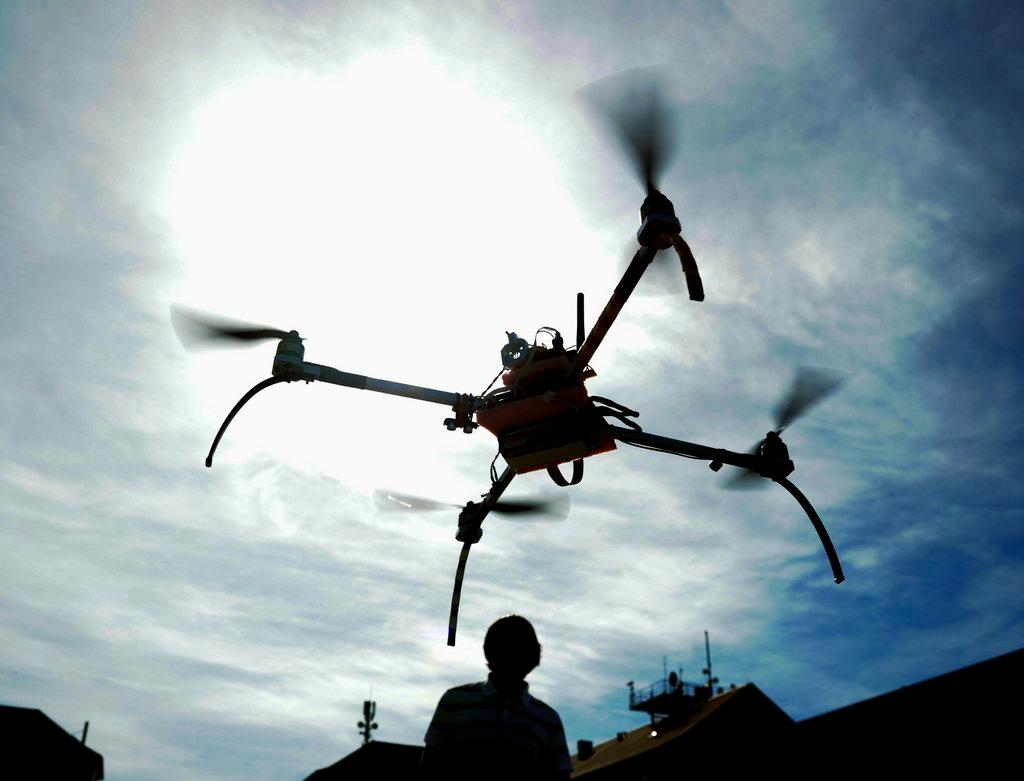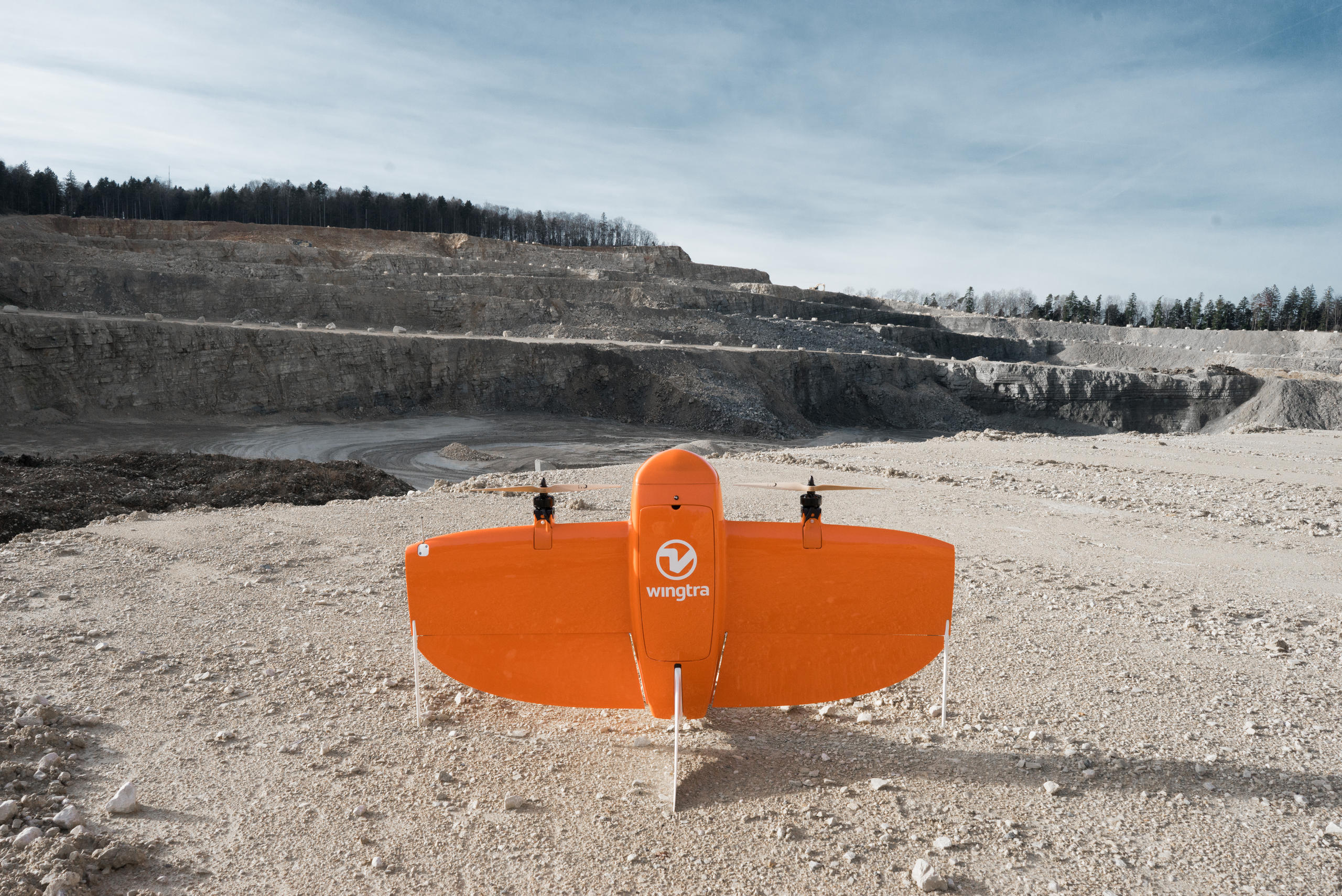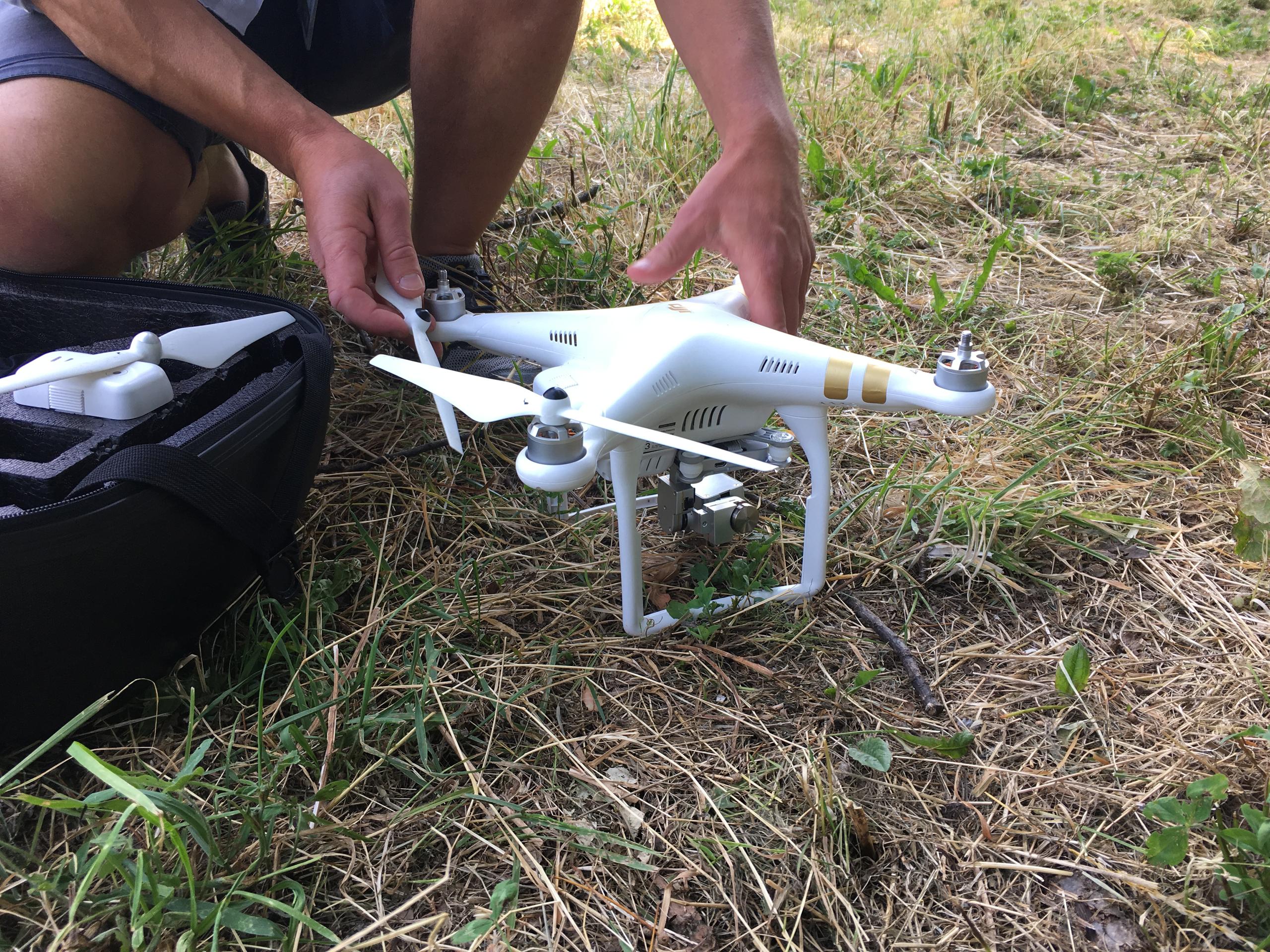Welcome to the Drone Valley

Switzerland has emerged as a leader in the research and development of drones. Insiders talk about a "Drone Valley" between the Federal Institutes of Technology in Lausanne and Zurich, which is home to 80 startups in the field. What are the factors driving their success? And how are we going to avoid chaos in the skies?
“This is the best place in Europe to be working on robotics and making your ideas a reality,” says Przemyslaw Kornatowski.
“In this area, we are really good; so much so that there are firms leaving the USA to join us here in what we call ‘Drone Valley’,” says Maximilian Boosfeld.
Both men are the founders and heads of startups in Switzerland. Kornatowski is producing a drone surrounded by a protective cage for transporting small parcels. Boosfeld heads Wingtra, a company of 45 staff members that in 2017 produced a specialised drone for cartography and surveying.

Innovation conquers the market
Wingtra’s drone was developed as part of a research project at the Swiss Federal Technology Institute ETH Zurich. Its success has been due to its combination of a helicopter’s vertical takeoff, and an aeroplane’s horizontal flight.
“These features helped us win out over the competition,” explains Boosfeld. “Our fixed-wing drone covers surfaces bigger than a quadcopter, and it can take high-resolution pictures because it is equipped with very sophisticated cameras.”
Wingtra’s drone is used all over the world, in major infrastructure projects or open-pit mines, to monitor consutruction work or the excavation of material from the sky above.
Kornatowski’s drone was designed at the Swiss Federal Institute of Technology in Lausanne (EPFL). At present, his startup Dronistics employs seven robotics experts.
“Our machine can be picked up and handled even in flight without risk of injury from the rotor blades,” he explains. The carbon-fibre protective housing can be opened like a package. Having delivered the goods – letters, medicines, first aid supplies, or food – the drone makes its own way back to base thanks to an application developed by Lausanne researchers.
“After use, the PackDrone can be folded up and conveniently stored in a rucksack or a drawer,” adds Przemyslaw. “Our idea has had a good response and we already have some customers.”

Three success factors
This success story has not come by chance. In fact, there is a flourishing startup scene in the Drone Valley – the stretch of land between EPFL and ETH Zurich. In the last few years, over 80 firms have sprung up there, generating 2,500 jobs.
This development has been favoured by several factors. “Switzerland has two fine robotics schools; the best in Europe, if not the world. A startup should bring together the smartest minds to transform an idea into a successful product. That can happen here in Switzerland,” Boosfeld says.
“Here, there are programmes and structures to encourage innovative projects and to support startups – one being Innosuisse“, notes Kornatowski.
Thanks to a pragmatic legislative environment, which allows freedom to researchers, Switzerland is now a leader in drone technology. “The federal government intends to maintain the pioneer role and wants to see this industry grow further. For anyone working in the sector, that means being able to work with an open-minded government that knows about the needs of research and development, avoiding the nuisance of red tape,” says the Wingtra CEO.
The word “drone” is not yet used in Swiss legislation. The pilotless devices are classed as “model aircraft”, though they can do a lot more than fly. The Federal Office of Civil AviationExternal link is now working on a major revision of the existing regulations.

More
Curious about drones? Here are the basics
Space to share and manage
In the meantime, the federal aviation authority has also developed a new method for evaluating risks linked to the use of these craft, dubbed the “specific operations risk assessment” (SORA). This is an analytical process that is now being studied worldwide. It is also intended to create a register of drones, which would enable their owners to be found if needed. Each owner would need to register his or her craft, which would be fitted with a technical system enabling identification of the operator. This would make it possible to find and stop anyone engaging in illegal activities, such as privacy violations.
Drones are becoming more and more common in the skies overhead. In Switzerland, 22,000 are sold every year, and there are 100,000 currently in operation.
“There’s enough room up there for everybody – birds, helicopters, planes, skydivers – but we need to find a strategy to get them to coexist,” says Boosfeld.
In response to the challenge, a non-governmental organisation, the Lausanne-based Global UTM Association, has created a system to manage drone traffic at the national level. The system is analogous to Skyguide, which manages all civil and military flight operations in Switzerland. U-Space is the name of this digital infrastructure to control drones in the air; its main task will be to regulate traffic in the skies over densely populated areas or near airports. This is a pioneering project for Europe, and it’s being developed in Switzerland’s Drone Valley.
Transport of laboratory samples
Since March 2017, the Swiss Post in Lugano has been offering the world’s first service for independent transport by drone of samples for laboratory testing. The quadcopter flies at an average speed of 36 kilometres per hour (22mph) between the city’s Italian and Civic Hospitals. In case of in-flight failure, a parachute is automatically released.
Following the start made in Lugano, transport drones made ten days of test flights between Tiefenau and the University Hospitals in Bern in early June 2018.
In Zurich, on the other hand, an experiment with transporting blood samples between Hirslanden Clinic and the cantonal central laboratory was stopped after only a day of operation. Residents near the landing area protested about the excessive noise from the drones.
Translated from Italian by Terence MacNamee

In compliance with the JTI standards
More: SWI swissinfo.ch certified by the Journalism Trust Initiative











You can find an overview of ongoing debates with our journalists here . Please join us!
If you want to start a conversation about a topic raised in this article or want to report factual errors, email us at english@swissinfo.ch.